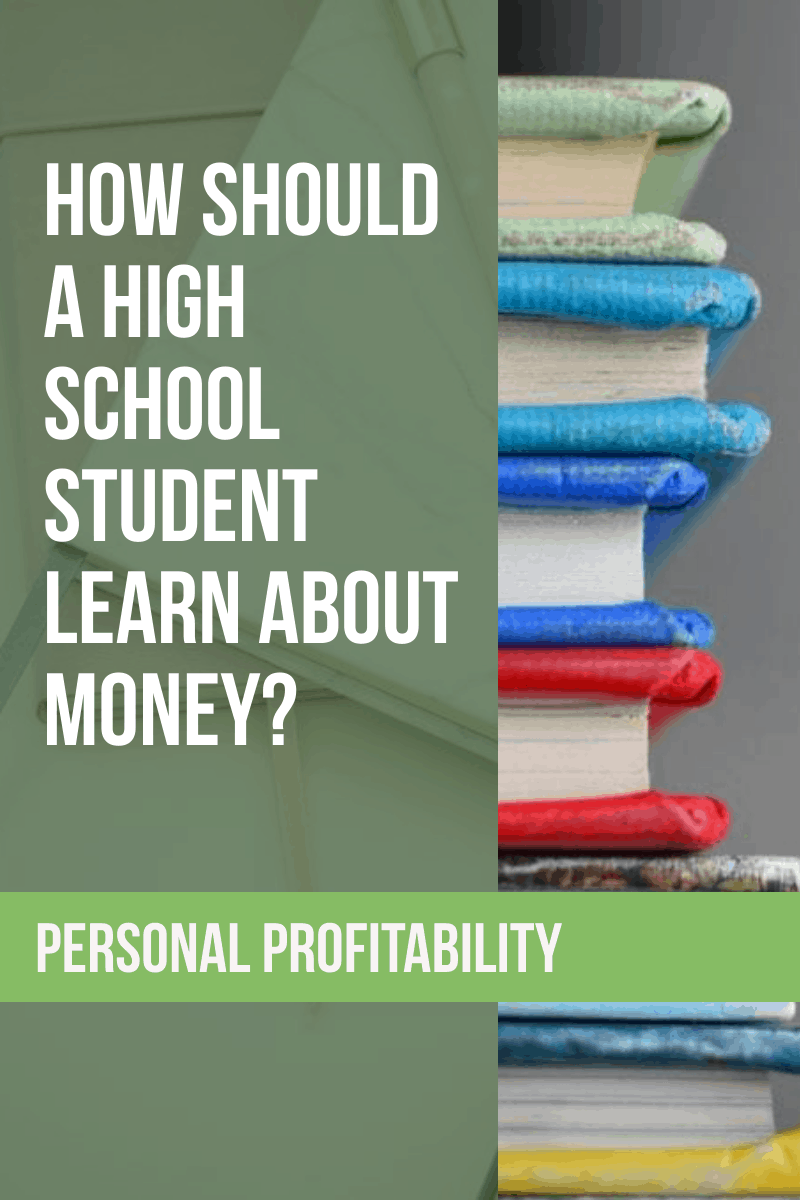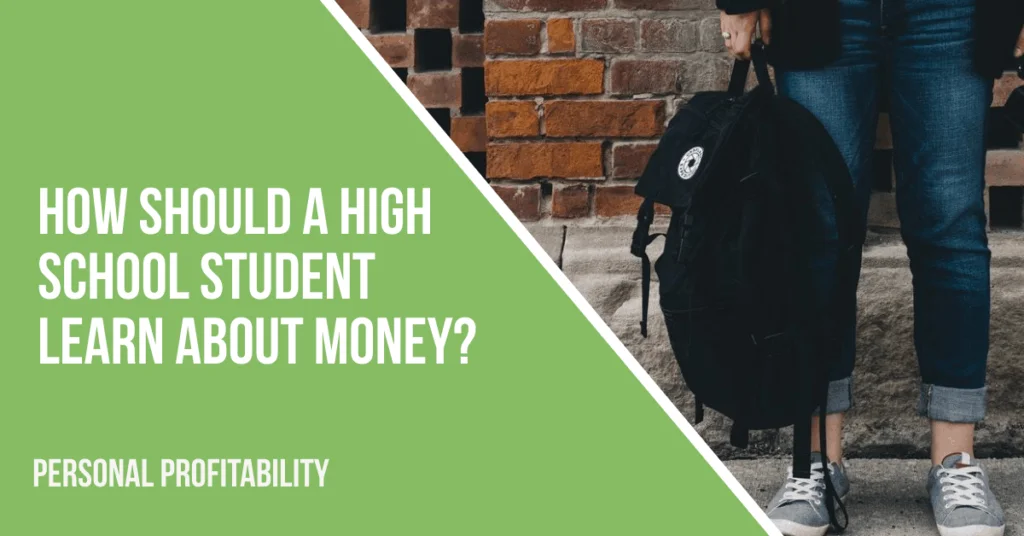Many parents shield their children from their personal finances, which can make sense for many families. However, kids will become adults sometime and will have to learn about money sometime. As schools teach almost nothing about personal finance, those lessons should come from parents. But should high school students start managing their own money?

Learning About Money Through Banking
The first step to learning how to manage your own finances is to have access to them. Your bank account is the hub of your personal finances, and that should be the first step for a young adult to learn to manage.
Understanding how checking accounts work, how your income relates to your savings and purchasing abilities, and that an overdraft is a very bad thing should be the basis of a strong financial foundation.
Learning About Money Through Budgeting
Once your high schooler, or you if you are an awesome high school student ahead of the curve, has an understanding of their bank accounts, they should take over managing them for themselves. Mom and Dad won’t be there in college to hold hands and walk through everything, so it is important to feel comfortable with personal finance before leaving for school.
The next development step after banking is budgeting. Learning to spend less than you earn is important for everyone, and good habits start at an early age. Knowing what can be spent on dining out, entertainment, pizza delivery, and beer is also important at any age but comes in particularly useful during the first years away from home.
Develop Good Spending Habits
Budgeting is about spending less than you earn and planning for savings, but the next level up on the hierarchy of personal finance achievement is to understand needs versus wants and how to judge a good purchase compared to a bad one.
Using our money to enhance our lives is good, but wasteful spending on crap we don’t need is far too common. Learning what we value and focusing our spending there rather than on stuff that sits in the back of the closet and clutters up a home is an important skill, and knowing the difference is not always an easy distinction. But good guidance at a young age will again create good habits.
Learn the Benefits and Pitfalls of Credit Cards
Credit card companies have some restrictions when selling cards to college students compared to when I was in school, but that does not mean they are not still their hocking cards at kids for a free pizza or t-shirt. I will not sign up for a new card for anything less than 40,000 miles, a free pizza is chump change in comparison.
Using a credit card has many benefits, such as delaying having to pay for some purchases, keeping your bank accounts more secure from fraud, and getting great perks like miles and points and cashback. However, treating a credit card as free money will lead to huge expenses later on, not to mention bad credit.
Getting started with a free credit score and free credit report can help a student understand what makes up their credit and how to build it for a successful future.
Practice for Personal Finance Independence
Practice makes perfect, and overbearing parents mean well but are not instilling the independence needed to manage a successful financial future. Only through practicing good habits and learning from their own mistakes will a young person learn the best habits and tricks for managing their money.
If you are a parent, let your child take over managing their own money. Maybe even give them a glance into the family finances so they can understand what housing, food, and other necessities cost and what it takes to budget for the fun things in life.
If you are a student, send this over to your parents. You are already a rock star for taking interest in your finances, and you are on the path to good things ahead. Stick around and keep reading and always practice good habits. Find a financial mentor, whether a parent or other trusted adult, that you can go to for guidance when you have questions or need help. And I’m always just an email away too.
Do you have any questions about finances for young adults and high school students or any stories to share? Please do in the comments.

This post was originally published on June 15, 2015, and updated on August 25, 2021.



Good coverage of a very important topic. A young person’s first experience with managing their finances shouldn’t be digging out of debt. Ensuring children and young adults are introduced to financial concepts early and are continually improving their financial literacy is a tremendous gift.
I couldn’t agree more. A high school (or middle school) is a much better place for financial lessons than the school of hard knocks. We learn so much about our finances the hard way when schools have a great opportunity to fit money into the curriculum.
I’m working with my local school district to help promote financial literacy program in our schools. It’s an important topic students get exposed too.
That is a great project Brian. Local schools do so little to prepare students for such an important part of their life. I know a ton of people who would have benefited a lot more from a finance class than subjects like chemistry or music. Covering traditional topics is important, but ensuring graduates can live as adults in society is an important piece of that.